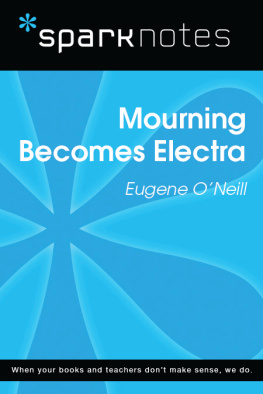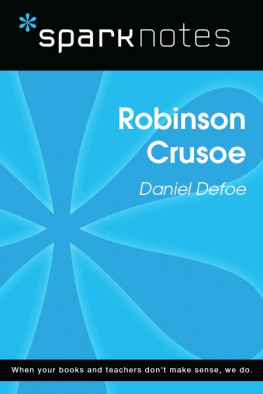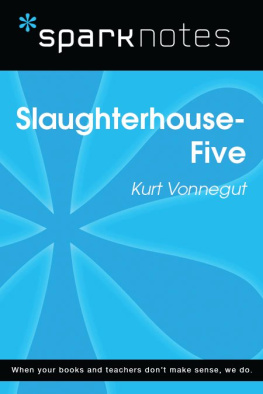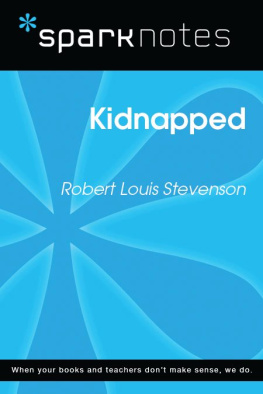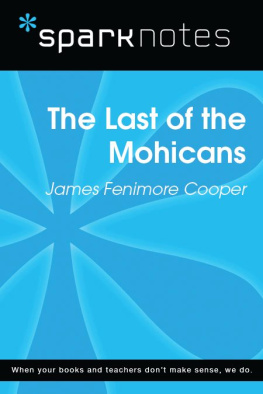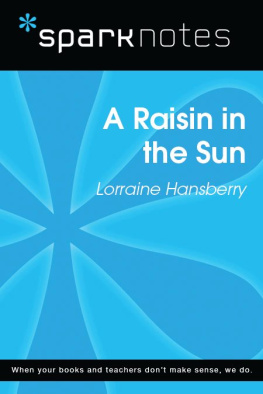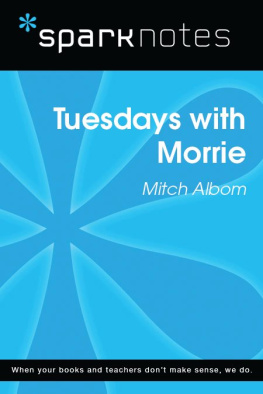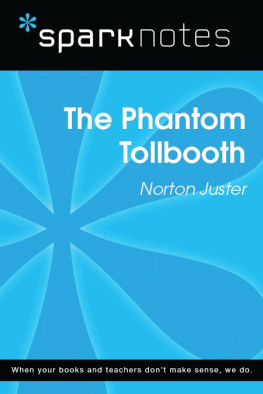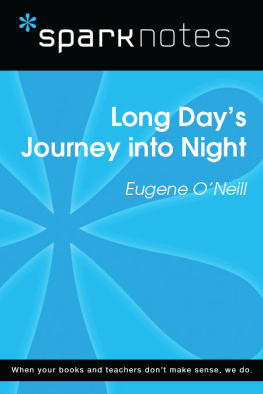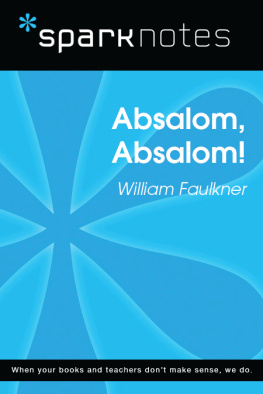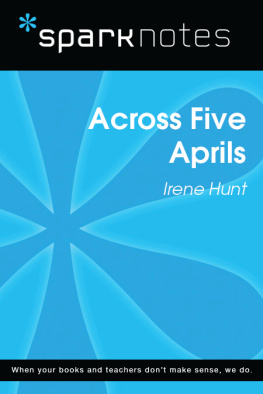Mourning Becomes Electra
Eugene O'Neill
2003, 2007 by Spark Publishing
This Spark Publishing edition 2014 by SparkNotes LLC, an Affiliate of Barnes & Noble
All rights reserved. No part of this publication may be reproduced, stored in a retrieval system, or transmitted in any form or by any means (including electronic, mechanical, photocopying, recording, or otherwise) without prior written permission from the publisher.
Sparknotes is a registered trademark of SparkNotes LLC
Spark Publishing
A Division of Barnes & Noble
120 Fifth Avenue
New York, NY 10011
www.sparknotes.com /
ISBN-13: 978-1-4114-7667-7
Please submit changes or report errors to www.sparknotes.com/errors.
10 9 8 7 6 5 4 3 2 1
Context
Eugene O'Neill (18881953) was the son of an actor whose work meant that the family led a difficult life on the road. O'Neill would later deeply resent his insecure childhood, pinning the family's many problems, including his mother's drug addiction, on his father. Educated at boarding schools, O'Neill gained admission to Princeton University but left after only one year to go to sea. He spent his early twenties living on the docks of Buenos Aires, Liverpool, and New York, sinking into an alcoholism that brought him to the point of suicide. Slowly O'Neill recovered from his addiction and took a job writing for a newspaper. A bout of tuberculosis left him incapacitated and he was consigned to a sanitarium for six months. While in recovery, O'Neill decided to become a playwright.
O'Neill wrote his first play, Bound East for Cardiff, in 1916, premiering it with a company in Provincetown, MA that took it to New York that same year. In 1920, O'Neill's breakthrough came with his play Beyond the Horizon. Historians of drama identify its premiere as a pivotal event on the Broadway stage, one that brought a new form of tragic realism to an industry almost entirely overrun with stock melodramas and shallow farces. O'Neill went on to write over twenty innovative plays in the next twenty years, to steadily growing acclaim. The more famous works from his early period include The Great God Brown (1926), a study in the conflicts between idealism and materialism, and Strange Interlude (1928), an ambitious 36-hour saga on the plight of the Everywoman. His late career brought such works as his masterpiece, The Iceman Cometh (1946), an Ibsenian portrait of man's hold on his pipe dreams, and A Long Day's Journey into Night (1956), the posthumously published and painfully autobiographical tragedy of a family haunted by a mother's drug addiction.
O'Neill wrote morality plays and experimented with the tragic form. O'Neill's interest in tragedy began as early as 1924 with his Desire Under the Elms, a tale of incest, infanticide, and fateful retribution, but would come to maturity with his monumental revision of Aeschylus's Oresteia,Mourning Becomes Electra (1931). O'Neill chose Electra because he felt that her tale had been left incomplete. More generally, as his diary notes indicate, O'Neill understood his exercises in tragedy as an attempt to find a modern analogue to an ancient mode of experience. Thus Mourning aims to provide a "modern psychological approximation of the Greek sense of fate" in a time in which the notion of an inescapable and fundamentally non-redemptive determinism is incomprehensible. Accordingly, the setting of the trilogy, the American Civil War, springs from O'Neill's attempt to negotiate the chasm between ancient and modern. For O'Neill, the Civil War provided a setting that would allow audiences to locate the tragic in their national history and mythology while retaining enough distance in time to lend the tale its required epic proportions. Mourning also provided O'Neill with an occasion to abandon the complex set design of the Art Theater, which he had long bemoaned as a constraint on the playwright's creative freedom.
Plot Overview
The Homecoming
It is late spring afternoon in front of the Mannon house. The master of the house, Brigadier-General Ezra Mannon, is soon to return from war.
Lavinia, Ezra's severe daughter, has just come, like her mother Christine, from a trip to New York. Seth, the gardener, takes the anguished girl aside. He needs to warn her against her would-be beau, Captain Brant. Before Seth can continue, however, Lavinia's suitor Peter and his sister Hazel, arrive. Lavinia stiffens. If Peter is proposing to her again, he must realize that she cannot marry anyone because Father needs her.
Lavinia asks Seth to resume his story. Seth asks if she has not noticed that Brant looks just like her all the other male Mannons. He believes that Brant is the child of David Mannon and Marie Brantme, a Canuck nurse, a couple expelled from the house for fear of public disgrace.
Suddenly Brant himself enters from the drive. Calculatingly Lavinia derides the memory of Brant's mother. Brant explodes and reveals his heritage. Lavinia's grandfather loved his mother and jealously cast his brother out of the family. Brant has sworn vengeance.
A moment later, Lavinia appears inside her father's study. Christine enters indignantly, wondering why Lavinia has summoned her. Lavinia reveals that she followed her to New York and saw her kissing Brant. Christine defiantly tells Lavinia that she has long hated Ezra and that Lavinia was born of her disgust. She loves her brother Orin because he always seemed hers alone.
Lavinia coldly explains that she intends to keep her mother's secret for Ezra's sake. Christine must only promise to never see Brant again. Laughingly Christine accuses her daughter of wanting Brant herself. Lavinia has always schemed to steal her place. Christine agrees to Lavinia's terms. Later she proposes to Brant that they poison Ezra and attribute his death to his heart trouble.
One week later, Lavinia stands stiffly at the top of the front stairs with Christine. Suddenly Ezra enters and stops stiffly before his house. Lavinia rushes forward and embraces him.
Once she and Ezra alone, Christine assures her that he has nothing to suspect with regards to Brant. Ezra impulsively kisses her hand. The war has made him realize that they must overcome the wall between them. Calculatingly Christine assures him that all is well. They kiss.
Toward daybreak in Ezra's bedroom, Christine slips out from the bed. Mannon's bitterly rebukes her. He knows the house is not his and that Christine awaits his death to be free. Christine deliberately taunts that she has indeed become Brant's mistress. Mannon rises in fury, threatening her murder, and then falls back in agony, begging for his medicine. Christine retrieves a box from her room and gives him the poison.
Mannon realizes her treachery and calls Lavinia for help. Lavinia rushes to her father. With his dying effort, Ezra indicts his wife: "She's guiltynot medicine!" he gasps and then dies. Her strength gone, Christine collapses in a faint.
The Hunted
Peter, Lavinia, and Orin arrive at the house. Orin disappointedly complains of Christine's absence. He jealously asks Lavinia about what she wrote him regarding Brant. Lavinia warns him against believing Christine's lies.
Suddenly Christine hurries out, reproaching Peter for leaving Orin alone. Mother and son embrace jubilantly. Suspiciously Orin asks Christine about Brant. Christine explains that Lavinia has gone mad and begun to accuse her of the impossible. Orin sits at Christine's feet and recounts his wonderful dreams about her and the South Sea Islands. The Islands represented all the war was not: peace, warmth, and security, or Christina herself. Lavinia reappears and coldly calls Orin to see their father's body.

